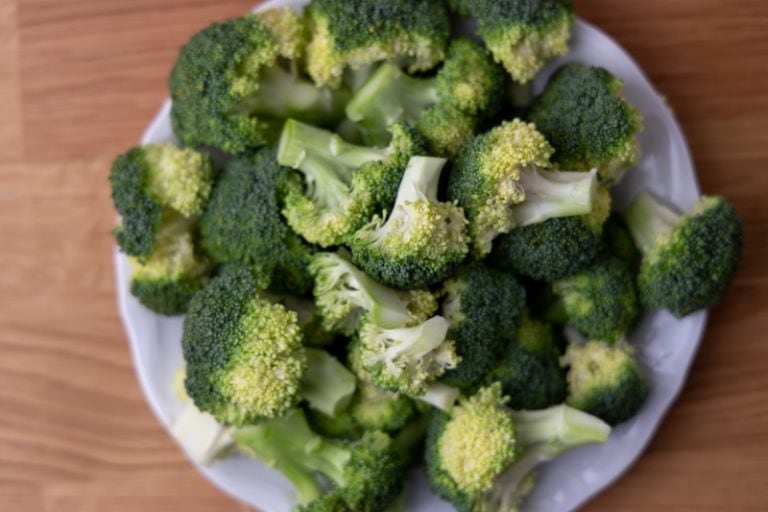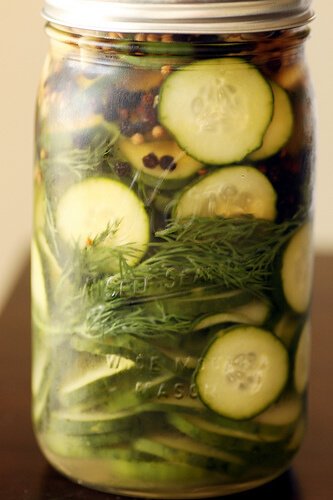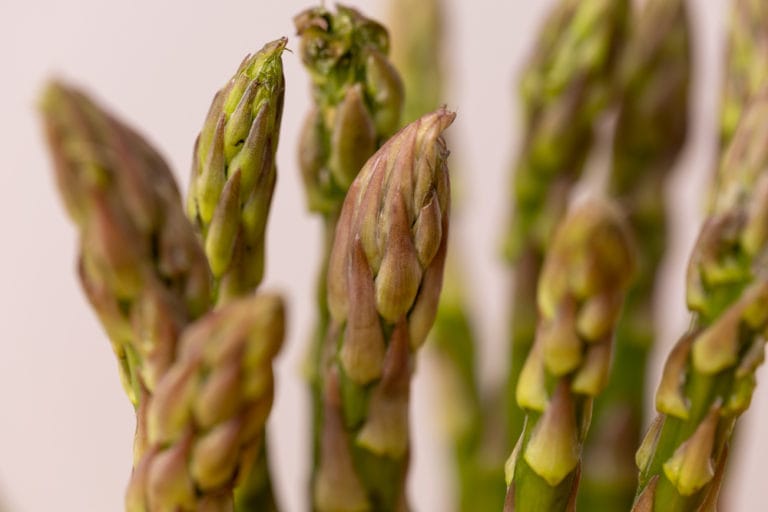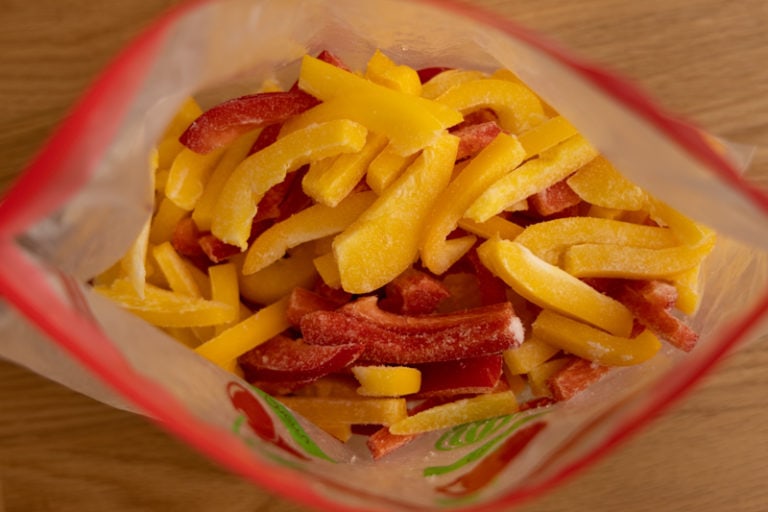How Long Does Butternut Squash Last and When to Toss It?
Here’s all you need to know about the shelf life and spoilage of butternut squash. Learn how long butternut squash lasts, how to store it, and how to tell if one is spoiled.
Got a butternut squash that’s been in storage for quite some time already, and wondering how long will it stay good for? How long does butternut squash last?
Or yours is a bit on the older side, and before you cook it, you’d like to know how to tell if butternut squash is bad.
Sounds familiar? If so, this article is for you.
Let’s talk about the shelf life, storage, and spoilage of this winter squash.
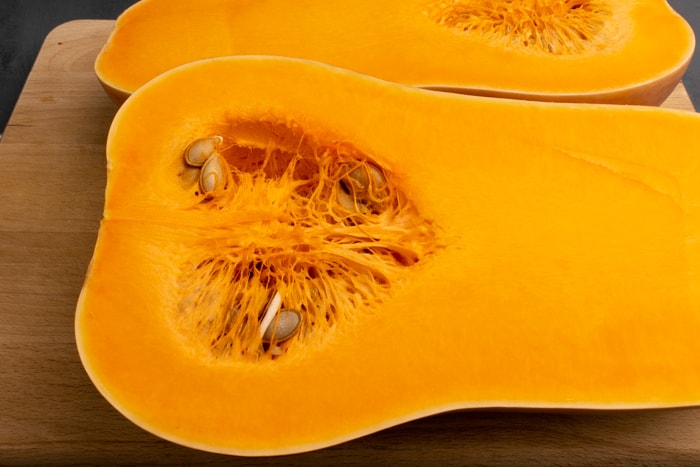
How Long Does Butternut Squash Last?
| Pantry | Fridge | |
|---|---|---|
| Whole butternut squash | 1 – 2 months | |
| Sliced/chopped butternut squash | 4 – 5 days | |
| Cooked butternut squash | 4 – 5 days |
A whole butternut squash typically lasts for 1 to 2 months in a cool and dark place. Once you cut it up, it keeps in the fridge for 4 to 5 days. Cooked butternut keeps for 4 to 5 days as well.
If that’s not long enough, you can freeze butternut squash.
As you can tell, the overall shelf life is quite long, as winter squash grow a thick skin that helps them stay fresh for longer.
Spaghetti squash lasts about as long as butternut, while summer squash, such as zucchini, lasts a couple of weeks tops.
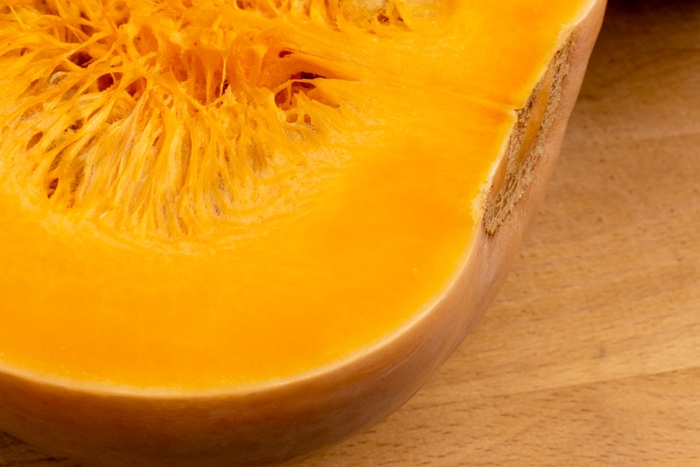
Maximum Shelf Life
Whole butternut squash can last much longer than the mentioned one to two months. Different sources throw out various numbers, but 3 to 4 months seems to be a pretty safe estimate.
The issue is that you need to store the squash in specific conditions to get those extra couple of months of storage. Those conditions are temperature between 55 and 60°F (12 to 15°C) and relative humidity of 50-70%.
(A similar temperature prolongs eggplants’ shelf life.)
That means if you don’t have a cool basement or an unheated garage, you’re out of luck.
If you simply leave your butternut squash in a veggie basket in the pantry or kitchen cabinet, you’ll get that one to maybe two months worth of storage time.
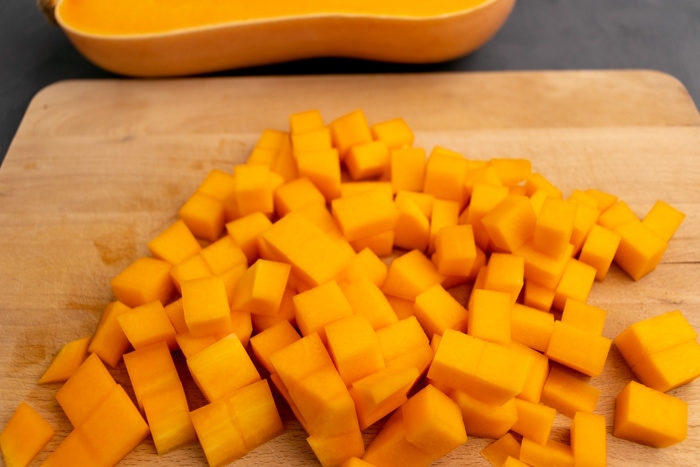
Cut Butternut
Cut butternut squash lasts for only 4 to 5 days, and you need to refrigerate it. You can store it in an airtight container, a resealable bag, or anything else that you can seal tightly.
That short storage time means if you’re not going to use it up all at once, you better have a plan on how you’ll use the rest. Of course, the easiest solution is to cook extra portions and freeze the leftovers.
After Cooking
Cooked butternut squash stays okay to eat in the fridge for about 4 to 5 days. If that’s not long enough, you can always freeze it.
Remember to transfer any leftover cooked butternut squash to a storage container and place it in the fridge within two hours of cooking. If the cooked squash sits out for longer, it’s no longer safe to eat.
(Those two hours are often referred to as the 2-hour rule.)
Of course, it’s up to you if you follow the 2-hour rule to a tee, and in most cases, if your cooked butternut sits on the counter for a bit longer than that, it’s still going to be okay.
If that cooked butternut is a part of a dish that retains quality for only a day or two, make sure to eat it within that period.
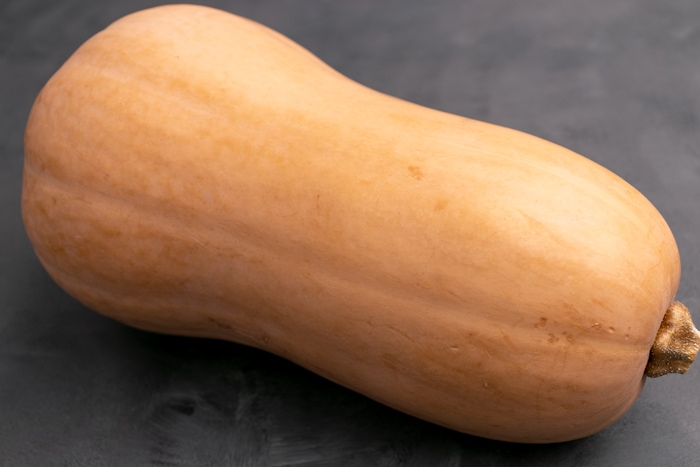
Does Butternut Squash Need to Be Refrigerated?
Whole butternut squash doesn’t require refrigeration, and more importantly, you shouldn’t store it in the fridge. If it’s stored for more than a couple of weeks at a temperature below 50-55°F (10-12.5°C), it’ll be subject to chilling injury that’ll likely lead to premature breakdown.
In plain talk, whole butternut squash will, in most cases, go bad sooner if you refrigerate it than if you leave it at room temperature.
You only need to refrigerate cut or cooked butternut.
Whole butternut squash should sit in a cool and dry place away from any ethylene-producing fruits and veggies such as apples, pears, or tomatoes. That’s because excess ethylene shortens the shelf life of squash.
(The same guidelines apply to pumpkins.)
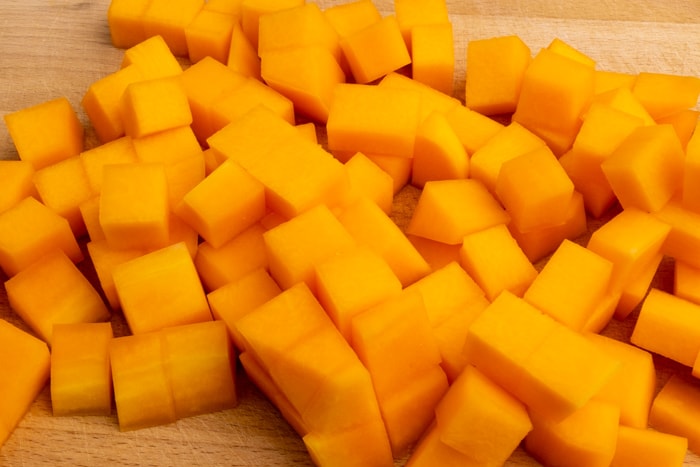
Can You Freeze Butternut Squash?
Butternut squash is a seasonal product, and it is only available during the colder months.
If you’d like to enjoy it when it’s not in season, freezing is an option. It’s also a decent solution if you know you won’t be able to finish the squash before it goes bad.
Like with many veggies, it’s best if you cook the butternut squash and then freeze it. Make your favorite cooked squash recipe for dinner and freeze the leftovers.
For freezing, use airtight containers and portion all the cooked squash, so you can easily thaw as much as you need for a single meal.
When it comes to thawing, doing it overnight in the refrigerator is the safest way.
Want to know more about the topic? Here’s my guide to freezing butternut squash.
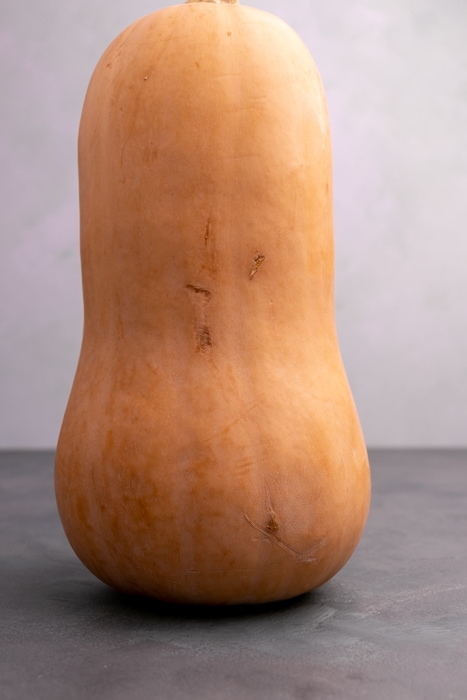
How to Tell If Butternut Squash Is Bad?
If the whole butternut is leaking liquid, feels hollow or empty inside, or is mushy, throw it out. Do the same if there are any large soft, moldy, or rotten spots (you can cut out small ones with some excess).
If the outer layer is okay, cut into the squash. If the flesh has the usual color and texture, it’s okay to use it.
If the squash is stored for a long time, the part with the seeds can start to look somewhat stringy and generally gross. That’s normal – cut it out as you usually do and enjoy the rest.
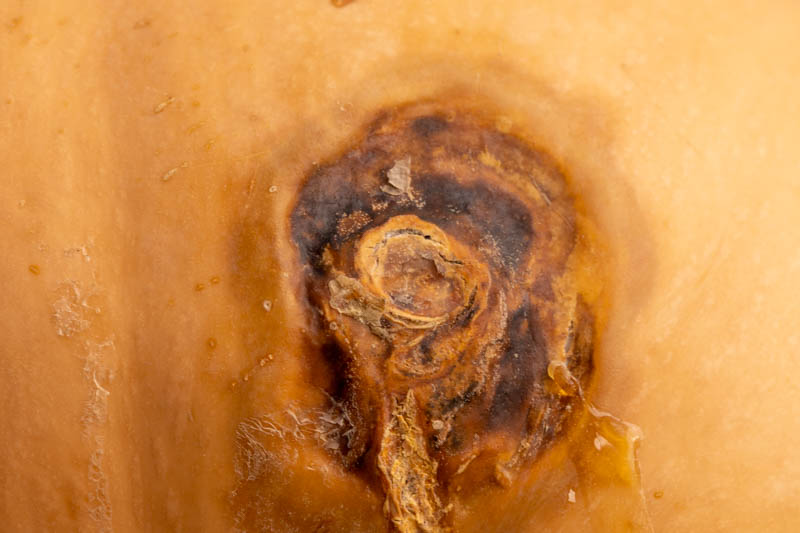
When it comes to cut butternut squash, if it sits in the fridge for a week or its quality is no longer acceptable, it’s time to throw it out.
Next, look for any signs of mold or an off smell.
Sometimes the veggie gets accidentally contaminated before you refrigerate it, and it grows mold after only a day or two in the fridge. If that’s the case, throw out the contents of the whole container.
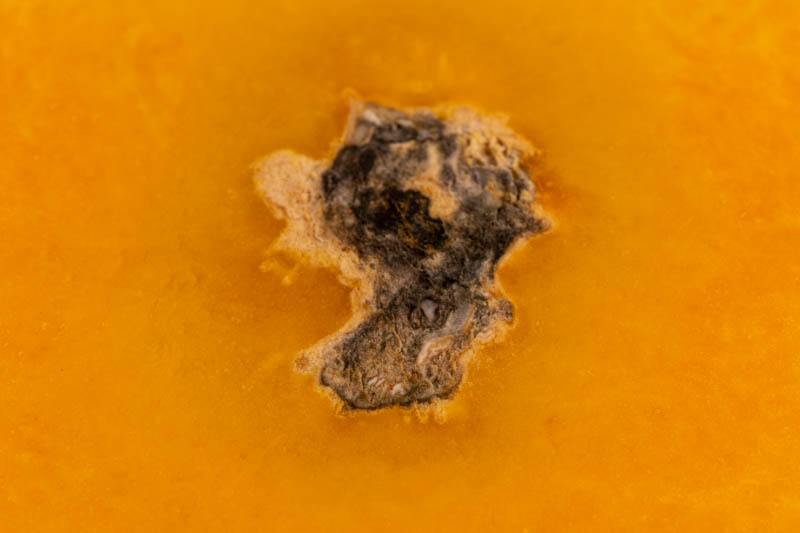
Butternut Squash Shelf Life and Spoilage Summary
Thank you for reading this short guide on butternut squash. Let’s briefly recap what we’ve covered above:
- How long does butternut squash last? In a typical pantry or kitchen, a whole butternut squash should last for 1 to 2 months. Once you cut it, you only have 4 to 5 days to use the leftovers, and the same is true for cooked butternut.
- Do you have to refrigerate butternut squash? No, and you shouldn’t store it in the fridge. Butternuts typically retain quality for longer if stored at ambient temperature than if refrigerated.
- How to tell when butternut squash is bad? Discard butternut that’s leaky, mushy, or has large spoiled areas. You can cut off small soft, rotten, or moldy areas (with some extra) and use the rest of the squash, similar to what you do with other veggies.
Rotten Records: Share Your Snap!
Caught some food past its prime? Upload your photo to “Rotten Records” and help others spot the signs of spoilage. Every image makes our food community safer and more informed!
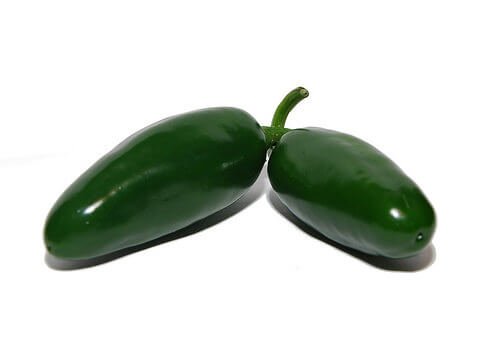
![How Long Does Kale Last? [+ Tips to Make It Last Longer]](https://www.doesitgobad.com/wp-content/uploads/how-long-does-kale-last-infographic-1-1-768x512.jpg)
